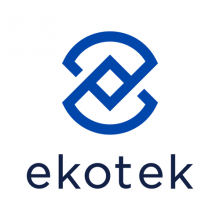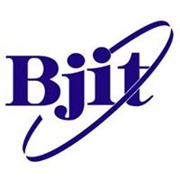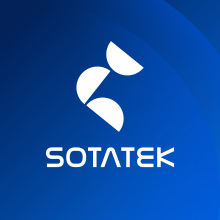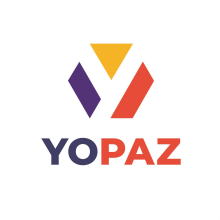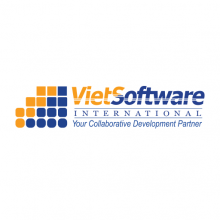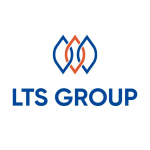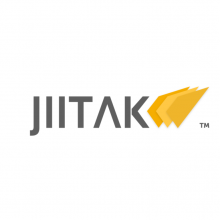
There are 22 Companies in Japan
that provide Azure Platform Services!
The Information and Communications Technology (ICT) industry in Japan is touted to be the top industry in the country. In 2025, this sector is worth $467 billion. The Japanese government aims to take this number to 3.4 trillion by 2028.
Discover Top IT Companies in Japan specialized in Azure Platform and other related services. Find the best IT service providers for your projects.
Azure Platform, developed by Microsoft, stands as a versatile cloud computing platform known for its ability to empower organizations with a wide range of cloud-based solutions. It offers a comprehensive suite of services and tools designed to support businesses in their digital transformation journey.
Handpicked companies • No obligation to hire • 100% risk-free
Featured Companies in Japan
This month, the following Azure Platform companies managed to provide an outstanding service and support. It's worth taking a look.
ReadyToWork Inc. powers DX Promotion and Business Acceleration, delivering exceptional business solutions through Hybrid Agile Development Approach
We are a software development company building future-proof Solutions
We are technically proficient, yet service-minded, we can speak technically if required, but we prefer to communicate ideas from a people perspective.
Explore Top Azure Platform Companies in Japan
Award-winning digital agency delivering next-gen web, CRM, and AI automation solutions that streamline operations and drive business growth.
Japan IT, Software, translation and manpower support services with 25+ years of experience.
Empowering society with product innovation
20+ experience providing a complete set of IT Solutions / AI development with JP/EN. Bridging a gap between international office and Japanese office.
Protean Studios have been driving global innovation with custom IT solutions, empowering businesses across industries and borders. Let's collaborate!
VietSoftware International (VSII) now has 150+ engineers and becomes one of the leading software outsourcing companies in Vietnam.
Empowering society with groundbreaking, technology-driven innovations in sustainability.
Innovative Software Solutions for Every Business
Multilingual Digital Marketing Agency in Osaka
Filter Azure Platform Companies in Japan by Cities
Find the right tech company near you or from a specific city. Some of the best companies might be located in smaller cities.
Find more Azure Platform companies around the world
TechBehemoths is the world's most advanced and user-friendly platform to match IT Companies with real clients without hustle.
ICT Industry in Japan: Country Profile and Insights
The Information and Communications Technology (ICT) industry in Japan is touted to be the top industry in the country. In 2025, this sector is worth $467 billion. The Japanese government aims to take this number to 3.4 trillion by 2028.
In fact, with the government steadily coming up with innovative ideas and efforts to significantly impact and contribute on a global scale, the industry is expected to boom exceptionally in the upcoming years. Both the public and the private sectors are aware of the importance of the latest, most innovative ICT solutions to advance the economy and are taking steps towards this. Hence, this sector holds immense business potential.
Why Work With Japanese IT Companies
Based on the country data of Japan, there are various opportunities in the ICT Sector. Firstly, the country ranks 3rd as the biggest market with average revenue per user in Asia. This means that local IT companies from Japan have adopted a mixed business model and adjusted it under both local and international IT market requirements. Shortly, Japanese IT companies approach international and local clients differently, keeping the longstanding business tradition but at the same time offering high-quality services and digital products to foreign markets under the rules of Western business style.
What to Be Aware of When Working With Japanese IT Companies
Since tech giants established business connections in Japan, local IT companies faced the need to change and adjust their approach to international requirements, ending the era of a “closed market”. This has brought both benefits and challenges for Japanese IT companies and web and software providers.
The biggest challenge remains the human resources for IT companies, since the legislation does not allow outsourcing professionals from other countries and relies only on native talent. Taking into consideration the demographics and the continuously ageing population, fewer young professionals are enrolled in the IT sector, which automatically means less flexibility and capacity to adopt new technologies and implement them into local digital business environments.
How Reliable Are Japanese IT Companies
Japan has built a reputation for its highly skilled professionals and trustworthy country, especially after WWII, when the US invested and developed under its umbrella the Japanese business environment. The Japanese IT companies, web and software agencies, take full advantage of this position by promoting their services and digital products on the international market.
How Does the Japanese IT Industry Relate to the Neighboring Countries
Japan has probably the most developed IT industry in the region and a proven high potential for providing the entire spectrum of ICT services at the highest quality. Nonetheless, South Korea and China are coming close to the 2nd and 3rd positions in terms of the IT industry and infrastructure development.
What is Azure Platform and what are its benefits for your projects?
Azure Platform, developed by Microsoft, stands as a versatile cloud computing platform known for its ability to empower organizations with a wide range of cloud-based solutions. It offers a comprehensive suite of services and tools designed to support businesses in their digital transformation journey.
There are more than 2722 IT companies that specialize in providing Azure Platform services to businesses across the globe. These companies serve as strategic partners, helping organizations leverage Azure to achieve their goals. Notable IT service providers in this domain include Accenture, Capgemini, Infosys, and Deloitte. They offer a spectrum of services, from Azure consulting and implementation to ongoing management and support.
Azure Platform service providers employ a combination of tools and technologies to deliver effective solutions. This may include Azure DevOps for continuous integration and deployment, Azure Monitor for performance tracking, and Azure Resource Manager for resource provisioning and management. It's essential to differentiate between Azure and Azure Platform: while Azure refers to the cloud platform itself, Azure Platform encompasses the set of services, solutions, and expertise offered by IT companies to optimize Azure for specific business needs.
Azure Platform is not limited to a single service but comprises a rich ecosystem of interconnected offerings. Related services include Azure Virtual Machines for scalable computing, Azure Kubernetes Service for container orchestration, Azure AI for artificial intelligence capabilities, Azure Data Services for robust data management, and Azure Security Center for enhancing security posture.
Selecting the right IT company for Azure Platform services is a critical decision. To make an informed choice, consider factors such as the provider's experience with Azure, client references, industry expertise, and the range of services they offer. Assess their ability to align Azure solutions with your business objectives, scalability requirements, and ongoing support capabilities.
Azure Platform services find applications in a wide array of projects, including:
-
Enterprise Resource Planning (ERP) Systems: Implementing scalable ERP systems to streamline business processes.
-
E-commerce Solutions: Building and managing high-performance e-commerce websites and platforms.
-
Big Data Analytics: Leveraging Azure's data analytics tools for data-driven insights.
-
IoT Solutions: Developing IoT applications for device management and data analysis.
-
AI and Machine Learning Projects: Building intelligent applications for predictive analytics and automation.
-
Cloud Migration: Migrating on-premises infrastructure to Azure for cost savings and scalability.
-
Cybersecurity Initiatives: Strengthening security through Azure's robust security services and monitoring capabilities.
-
Hybrid Cloud Deployments: Implementing a hybrid cloud strategy for data backup, recovery, and business continuity.





